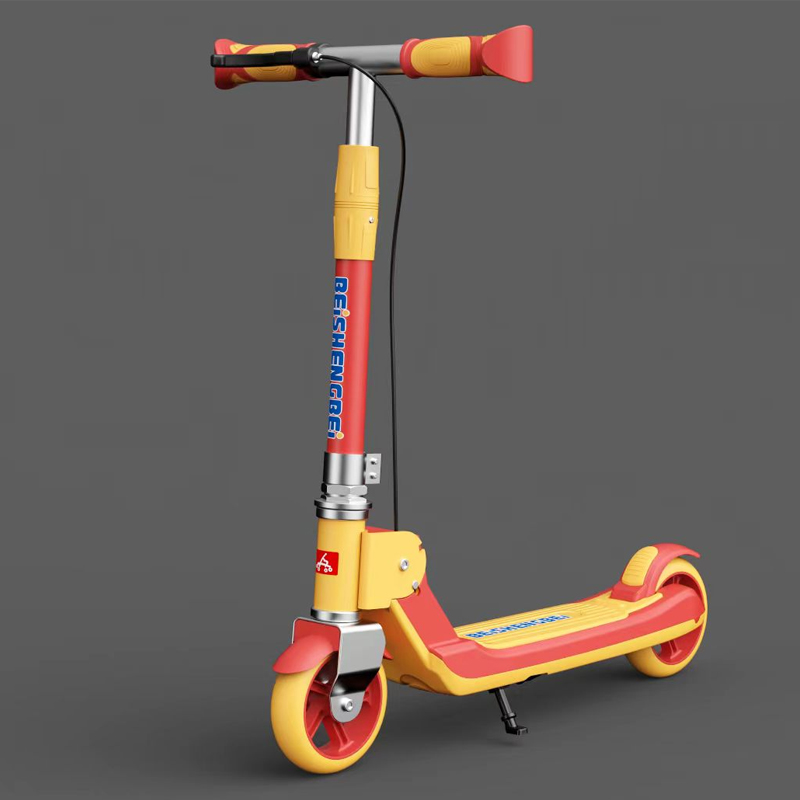The Rise of Electric Scooters A Sustainable Urban Transport Solution
In recent years, electric scooters have emerged as a significant mode of urban transportation, reshaping how individuals navigate their cities. With growing concerns about environmental sustainability and traffic congestion, these eco-friendly vehicles present a promising alternative to traditional fossil-fuel-powered modes of transportation. This article explores the benefits, challenges, and future potential of electric scooters in urban mobility.
Environmental Benefits
One of the most compelling advantages of electric scooters is their minimal environmental impact. Unlike cars, which emit greenhouse gases and contribute to air pollution, electric scooters run on batteries and produce zero tailpipe emissions. By replacing short car trips with scooter rides, communities can significantly reduce their carbon footprint. This shift is crucial in the fight against climate change, as transportation is one of the largest contributors to global CO2 emissions.
Moreover, the production of electric scooters requires fewer resources compared to cars. They are typically lighter, simpler in design, and require less energy to manufacture and maintain. Consequently, the overall environmental costs associated with their lifecycle are considerably lower than those of traditional vehicles.
Convenience and Cost-efficiency
Electric scooters are designed for convenience. They allow users to bypass congested traffic, navigate through narrow city streets, and find parking with ease. With smartphones enabling users to locate and unlock scooters at the touch of a button, the accessibility of electric scooters has never been greater. Many cities have implemented dockless scooter-sharing systems that further enhance mobility options for city dwellers and visitors alike.
From a financial perspective, electric scooters offer a cost-effective alternative. Individuals can save money on fuel, parking fees, and maintenance costs associated with traditional vehicles. Many scooter-sharing services operate on a pay-per-ride basis, which can be more economical for occasional users compared to owning a car. Additionally, the reduced wear and tear on public infrastructure, thanks to lighter electric scooters, can relieve some fiscal pressure on municipal budgets.
elektric scooter

Challenges Facing Electric Scooters
Despite their numerous advantages, the widespread adoption of electric scooters comes with challenges. Safety remains a significant concern, as accidents involving scooters can lead to injuries for both riders and pedestrians. Inadequate infrastructure, such as poorly designed bike lanes and sidewalks, can exacerbate these risks. Thus, urban planning and policies must evolve to accommodate this new mode of transport, ensuring safe and efficient routes for scooter riders.
Another challenge is the issue of clutter and improper parking, which can obstruct sidewalks and create hazards for pedestrians. Many cities have grappled with the negative perceptions surrounding scooter share programs, leading to regulations aimed at managing parking and usage. Public education campaigns are also vital to inform users about responsible riding and parking etiquette.
The Future of Electric Scooters
Looking ahead, the future of electric scooters appears promising, provided that city officials, manufacturers, and users collaborate to address existing challenges. With advancements in technology, such as improved battery life, GPS tracking, and anti-theft features, electric scooters are poised to become even more user-friendly and secure. Integration with public transit systems, such as buses and trains, can also enhance the overall urban mobility experience, allowing commuters to seamlessly transition between different transport modes.
Furthermore, the implementation of dedicated lanes and parking zones can facilitate safer riding and enhance the integration of scooters into city infrastructure. As urban areas continue to grow, innovative solutions like electric scooters will become increasingly essential for managing mobility challenges.
In conclusion, electric scooters represent a transformative shift in urban transportation, offering a sustainable, convenient, and cost-effective alternative to traditional cars. By addressing safety and infrastructure challenges, cities can harness the full potential of electric scooters, paving the way toward a more sustainable, efficient, and accessible urban environment. As they continue to evolve, electric scooters hold the promise of revolutionizing how we think about getting around our cities, making them an integral part of the future of urban mobility.
-

 Scoot&RideKids Child Kick Push Scooter 3 Wheels with LED Flashing Tilt Lean Boys Girls Scooter
Scoot&RideKids Child Kick Push Scooter 3 Wheels with LED Flashing Tilt Lean Boys Girls Scooter




- 4
$33.17 -

 Scoot&RideKids Scooter Child Kick Flashing LED Light Up 3 Wheel Push Adjustable Folding 3
Scoot&RideKids Scooter Child Kick Flashing LED Light Up 3 Wheel Push Adjustable Folding 3- 0
$25.52 -

 Scoot&RideKids Scooter Child Kick Flashing LED Light Up 3 Wheel Push Adjustable Folding 2
Scoot&RideKids Scooter Child Kick Flashing LED Light Up 3 Wheel Push Adjustable Folding 2- 0
$33.17 -

 Scoot&RideKids Scooter Teens Foldable Kick Push Scooter Adjustable Height Safe 2 Wheels
Scoot&RideKids Scooter Teens Foldable Kick Push Scooter Adjustable Height Safe 2 Wheels




- 4
$49.99
Meet our partners and discover what powers their creativity!
When you register for a Lohas scooter, you will receive a 10% discount on your first order and can be notified of sales, new product launches and other offers in advance.









